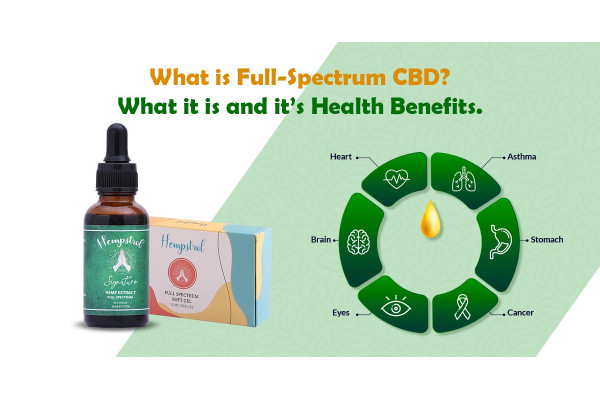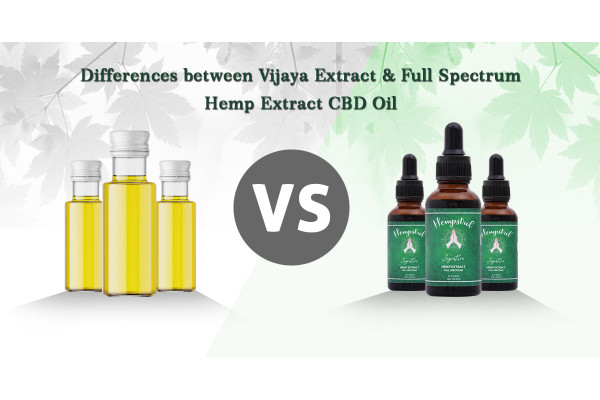Experience the Wonders of Hemp Oil for a Healthier, Happier Lifestyle in India
If one is not living under the rock, one must have heard about hemp, hemp seed oil and hemp oil (also known as CBD oil). Hemp is becoming increasingly popular as a treatment for a variety of ailments, including skin problems and stress-two such issues which everyone seems to be having. Himalayan hemp seed oil is derived from hemp, a cannabis plant similar to marijuana but with no tetrahydrocannabinol (THC), the chemical that causes individuals to experience euphoric effects or a "high."

What does it contain?
Here's more on the nutrients in hemp seed oil and how they can help your health.
It has high levels of omega-6 and omega-3 fats, both of which are unsaturated fats, or "good fats," as well as all nine essential amino acids, which your body requires to produce protein.
It's worth noting that Himalayan hemp seed oil has a high iron content (17% of your RDA). This aids in the prevention of iron deficiency or anemia.
.jpg)
Health Benefits
Hemp seed oil for dogs skin can also be used for humans too. Hemp seed oil is used to treat a variety of ailments. According to certain research, its nutrients and minerals can help with skin and heart health, as well as help in reducing inflammation
Improving Cardiovascular Health: Hempseed oil contains the amino acid arginine. This component has been found in studies to help maintain a healthy cardiovascular system. Consuming foods high in arginine can help reduce the risk of heart disease. Hemp seed oil's full vitamin profile may also be beneficial to the heart. An older study published in the journal Nutrition & Metabolism highlights the nutrient profile of hemp seeds and suggests that they may help with a variety of health conditions, including high blood pressure, atherosclerosis, and cholesterol levels. An increase in alpha-linolenic acid, one of the fatty acids found in hemp oil, appears to lower the risk of cardiovascular disease. This fatty acid, known as linolenic acid by doctors, is also found in fish oils and flaxseed oil.
Improves brain health: The fatty acid content of hemp seed oil may also be beneficial to the brain, which requires a healthy amount of fat to function effectively. Other chemicals found in hemp seed oil may help preserve the brain. The authors point out that hemp seed oil includes polyphenols, which may help preserve the brain.
Reduces Inflammation: Excess inflammation in your body can contribute to a number of ailments over time, including heart disease, diabetes, cancer, and asthma. It has been claimed that gamma linolenic acid, an omega-6 fatty acid present in hemp, has anti-inflammatory properties.
Improves Skin: Applying hemp seed oil topically to your skin can also help reduce symptoms and provide treatment for a variety of skin conditions. One study found that hemp seed oil can be used to treat acne, although more research is needed in this area. Furthermore, the presence of "good" polyunsaturated fats in hemp seed oil was proven to relieve symptoms of atopic dermatitis, or eczema.
Muscle Tension: Hemp seed oil may also help with overall stress and muscle tightness. it has an anti-inflammatory effect on the body, which may help decrease stress-related tension and aid workout recovery. Rub a small amount of hemp seed oil into tense muscles to help release tension and relax them.
Acne: Hemp seed oil's fatty acids may help balance the skin and prevent inflammation, which can lead to acne. According to a study published in the Journal of Clinical Investigation, CBD may alter the sebum glands in those with chronic acne, resulting in reduced sebum production and potentially aiding in the clearing or prevention of acne breakouts.
Natural pain relief: Many people use hemp or CBD oil to relieve pain, especially if the discomfort is caused by inflammation. Those who do not wish to take over-the-counter or prescription pain drugs can get relief from a high-quality hemp seed oil.
Eases down Arthritis Symptoms: The majority of clinical trials on omega-3 supplements for arthritis have focused on rheumatoid arthritis, an inflammatory condition that produces joint inflammation. Several small-scale investigations found that supplementation improved rheumatoid arthritis symptoms such as joint pain and stiffness. According to one study, persons with rheumatoid arthritis who take fish oil may be able to reduce their dose of nonsteroidal anti-inflammatory drugs (NSAIDs). Rheumatoid arthritis is a type of autoimmune disease. It causes the immune system to attack its own tissues, resulting in joint inflammation.
In 2014, human cell studies revealed that hemp seed oil may have anti-rheumatic properties.

Should I be aware of any risks associated with Hemp seed oil?
Although hemp and marijuana are both derived from the cannabis plant, hemp contains no THC depending on the strain it is extracted from. The strain Hempstrol extracts from ensures that there is no THC in their oil making it completely safe for everyone to use or incorporate in their lifestyle.
In general, hemp seed oil is safe to consume or apply topically, but there are a few things to keep in mind if you decide to begin using hemp oil. Keep the following potential hemp oil hazards in mind:
Skin irritation: Some people notice skin issues when using oils, which could be related to an allergy. Begin with a small amount to see how your skin reacts or patch test it on your skin and keep an eye out for any changes.
Digestive Problems: Again, when integrating hemp oil into your diet, start slowly to observe how it affects you. Different people will have different reactions.
So we are saying,
Do you know Hemp may have qualities that help to reduce the risk of disorders including Alzheimer's and cardiovascular disease? It also has the potential to alleviate inflammation in the body. With that being said, further research is needed. Meanwhile, you can take Hemp seed oil from a brand like Hempstrol that is backed by the Ministry of AYUSH and is willing to bring transparency on the table when it comes to ingredients.













-600x450.jpg)




